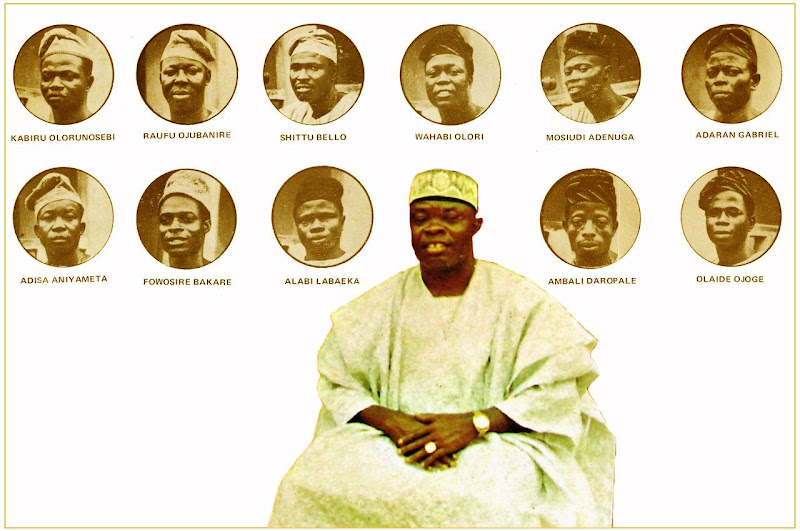
To me these last few weeks have been very demanding. I am not a winter person, and have a strong tendency to feel culturally alienated when the whole of the Netherlands is in the grip of such - to me abhorrent and trauma-provoking - activities as skating. On ice, that is. I have been in various stages of cocooning, cut off from most public media with their constant incitement to partake in the winter 'fun', avoiding the mass hysteria and manic social derangement that went on in the freezing towns and villages of these usually moderate regions.
As an added bonus I was forced to play nurse, errand boy and cook to both wife and child as they, as a result of their involuntary participation in the same winter merrymaking, were knocked out with a sobering attack of the flu.
So I have resorted to a certified cure. To all ailments of the spirit and the soul. The positive energy of the immortal master of apala music, Haruna Ishola and his group. From the days prior to his visit to the holy place, it appears (no "Alhaji"). And although in the last part of side B there is mention of a "detention" (and this linked to the future Alhaji himself!!) I am convinced it must have all been a very unfortunate misunderstanding, and must have ended with the magistrates and police officers involved offering their humblest and sincerest apologies to the aggrieved but forgiving Baba Ngani.
Perhaps not the best quality record 'vinyl-wise', but good enough to help me through these rough winter times and to get me in the right mental mood for spring...
SRPS 21, 1975









.JPG)


























